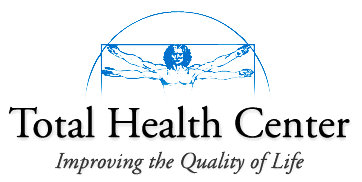HORMONES!
The regulation of hormones plays an important role in your health. For example, Prolactin is a hormone that’s made by your pituitary gland. High levels of prolactin suppress TSH or Thyroid-Stimulating Hormone. Prolactin is balanced by progesterone and dopamine, so when people have a dopamine deficiency, or progesterone deficiency, their prolactin will increase, and that will decrease the function of the pituitary’s production of thyroid-stimulating hormone. Remember when I stated that the thyroid controls your body’s metabolism.
The imbalance will show up on your labs, perhaps, if you’re lucky, as the TSH is low, but not quite out of the reference range. This is why it’s important to know that there are “optimal” or “functional” levels. .
Prolactin also suppresses luteinizing hormone (LH) in women. Excess prolactin can cause infertility. In men, excess prolactin depresses testosterone so they have low libido. High prolactin can cause tumors that are called prolactinomas.
Another common female hormone disorder is PCOS, or Polycystic Ovarian Syndrome. It affects 5-10 percent of menstruating women, and it is one of the most common causes of infertility. PCOS symptoms include the inability to lose weight, hair loss, fatigue after meals, hormone imbalances, and sugar cravings.
Using blood chemistry tests, PCOS can be identified by insulin resistance. Again, insulin resistance (pre-diabetes) is a blood glucose level from 100-126. This is a fasting blood glucose level. PCOS is also indicated by elevated triglycerides and cholesterol, especially IF THE TRIGLYCERIDES ARE HIGHER THAN THE CHOLESTROL LEVELS.
Insulin resistance is a condition in which the body cells become resistant to insulin due to a high-carbohydrate diet, which leads to excess testosterone production, and this leads to Polycystic Ovarian Syndrome. As testosterone levels rise, the cells become further resistant to insulin, and it’s a slow downward spiral. Cell resistance to insulin in turn promotes testosterone elevation, which continues that downward spiral.
Insulin resistance also promotes inflammation and immune system problems, which predispose the person to an autoimmune disease. In woman suffering with PN, can you see why it’s important to address Polycystic Ovarian Syndrome (PCOS)?
The bottom line is that excess levels of any hormone can cause peripheral neuropathy in both men and women!
Don’t suffer another minute! Call our office at 757 363-8571 and schedule a Free consultation with Dr. Scott. Call now, space is limited!
